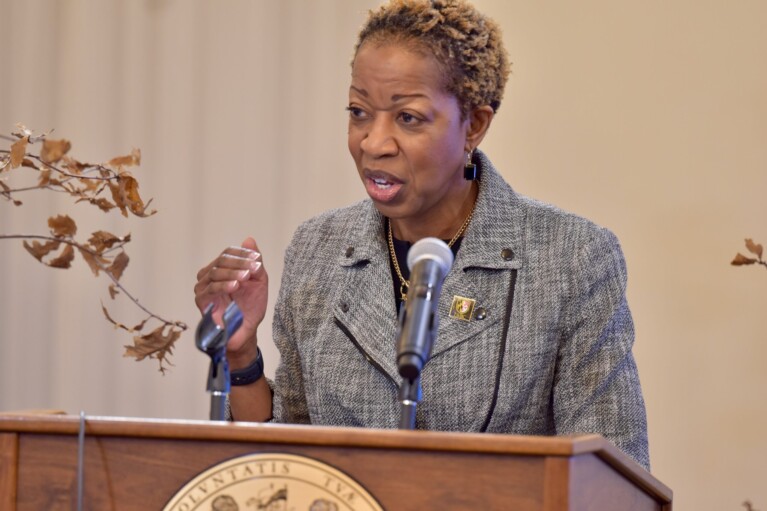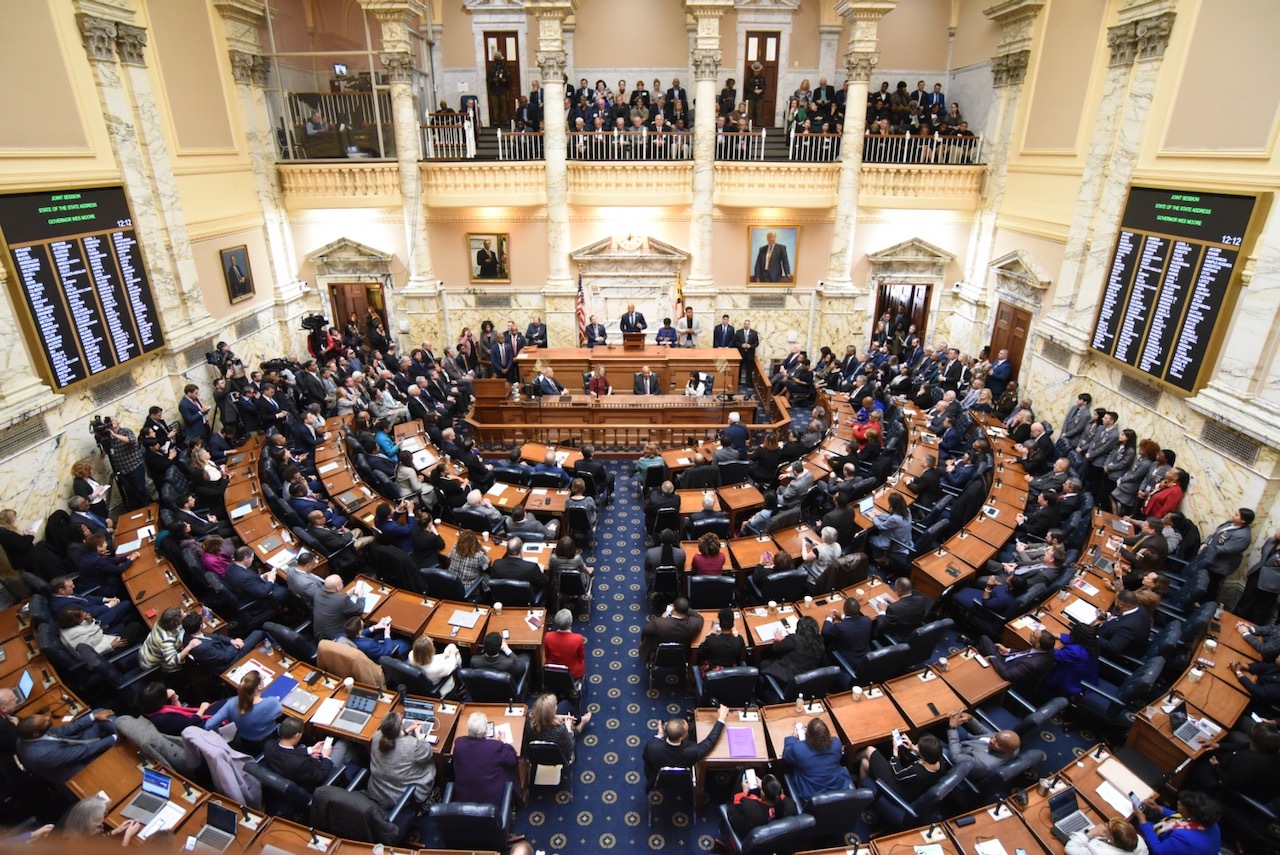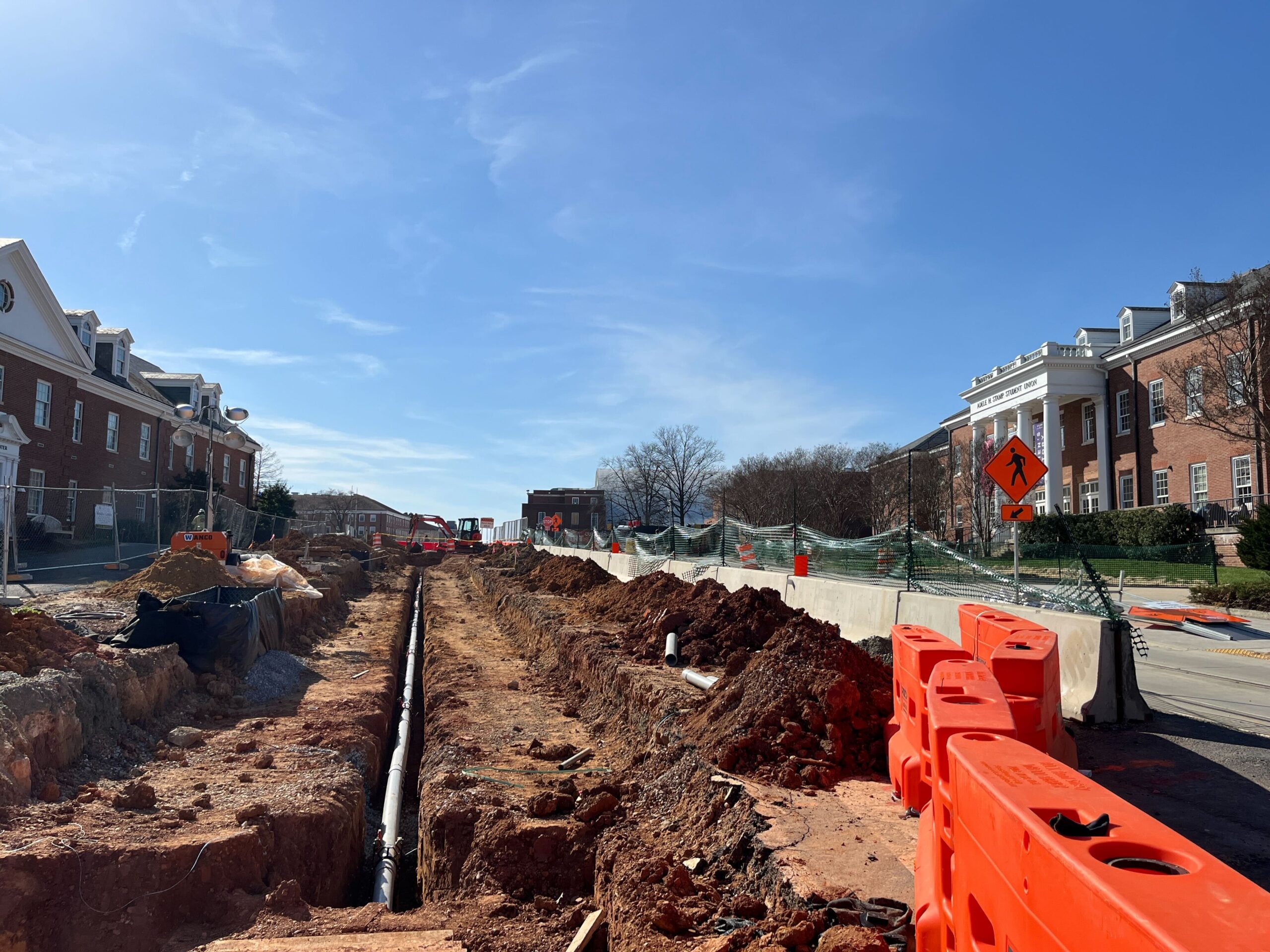New Research Calls for Nonpartisan Primaries in Baltimore
Winning the primary in Baltimore essentially guarantees victory for the city’s Democratic politicians, often making for an uncompetitive general election in November.
That’s why some say the city should abandon partisan primaries.
Christopher Warshaw, an assistant professor of political science at George Washington University and a Montgomery County resident, says Baltimore’s general elections – despite generally having a higher voter turnout than the primaries – aren’t competitive.
Warshaw wrote in a recent Abell Foundation report released just before the June 2 Maryland primary that a nonpartisan primary, in which all candidates run on the same ballot regardless of their party, might make general elections more competitive. Under his proposal, only the two most popular candidates, regardless of their party, would move on to the general election.
“This ‘top two’ primary would really shift the competition from … the primary to the general election, to create much more competitive general elections,” Warshaw said.
A top-two primary system is used for all elections except presidential primaries in California and Washington state.
Baltimore is a Democratic stronghold, and if it adopts nonpartisan primaries, its general elections might be entirely dominated by one party. Baltimore hasn’t had a non-Democratic mayor since 1967, when Republican Theodore Mckeldin ended his second term.
But Warshaw says general elections are already dominated by one party. Democrats often have a massive majority in November, and have to campaign much harder during primary elections. If the city shifted away from partisan primaries, he says, candidates would have to appeal to a much broader electorate to win.
Although there is a competitive Republican mayoral primary underway, and at least two independent candidates plan to compete in the general election — businessman Robert Wallace and real estate developer Kahan S. Dhillon Jr. — the winner of Tuesday’s Democratic primary will be the heavy favorite in November.
Key to Warshaw’s research is the idea that voters themselves should decide how to handle primaries. His proposal calls on the legislature to cede the decision on primaries to the people.
The idea of shifting toward nonpartisan primaries in Baltimore isn’t a new one. Del. Brooke E. Lierman, (D-Baltimore City), introduced a bill along those lines during the legislature’s 2019 session.
Although she later withdrew the bill, Lierman said in an email that she still stands by the idea of nonpartisan primaries.
“In reality, the Democratic primary is the general election for Mayor of Baltimore,” Lierman wrote in an email. “Because fewer people participate in primaries — both Democrats and anyone registered to another party or unaffiliated — that means that only one segment of our population is participating in picking our representatives”
Lierman and Warshaw have also floated the idea of ranked-choice voting, a system in which voters rank their candidates by preference instead of just voting for one individual. New York City adopted that system last year — and in Maryland, Takoma Park has used it for nonpartisan municipal elections for several years.
Nonpartisan elections and ranked-choice voting wouldn’t just create more competitive general elections, Lierman said, but would also increase trust in the system. She hopes that, as the practices become more widespread, the legislature will take a more serious look at election reform.
“It’s my hope that as more cities adopt this method of voting and people understand its great potential to improve our elections — and governing structures — that we will be able to pass enabling legislation not only for Baltimore, but to allow any county that wants to enact it to do so,” Lierman wrote in an email.
Opponents of nonpartisan primaries, however, say that primaries are partisan for a reason. Writing in Maryland Matters in response to Lierman’s bill last year, commentator Frank A. DeFilippo said open primaries would “allow outsiders who’ve rejected the parties – and this is especially so of independents – to stick their noses into party business in which they have no involvement or interest other than rejecting or defeating it.”
Politico reported that, before New York City voted on ranked-choice voting last year, some officials expressed fears that the change could make winning elections more difficult for candidates of color.
“Our communities of color have flexed their considerable muscle at the ballot box over the last decade by electing the first Asian and black female citywide officials as well as a racially and ethnically diverse majority of the City Council’s membership,” the New York City Council Black, Latino and Asian Caucus wrote in a statement to Politico. “Yet some critics have suggested that those historic victories were ‘anti-Democratic’ because they were not decided by a majority of voters.”
But Warshaw, Lierman and other proponents of open primaries and ranked-choice voting say the practice encourages candidates – especially in one-party-dominated areas like Baltimore – to engage with a more diverse range of voters. Lierman’s proposal in the legislature last year didn’t garner enough votes to pass the General Assembly, despite the Baltimore City Council’s prior request for the authority to hold open primaries.




 Creative Commons Attribution
Creative Commons Attribution